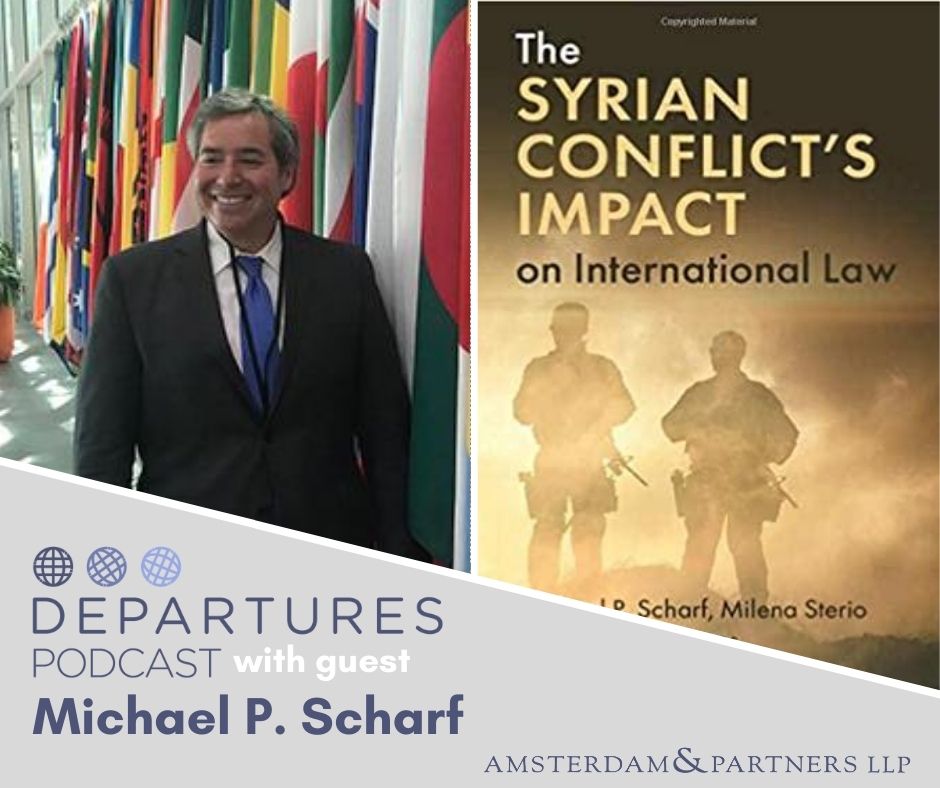Departures Podcast with Michael Scharf

As the Syrian conflict has raged on for almost a decade, and the United Nations is hamstrung with Russia’s veto power over proposed legal instruments to intervene, international law finds itself being innovated at light speed in response.
Michael Scharf, the co-dean of the Law School of Case Western Reserve University and the co-author of “The Syrian Conflict’s Impact on International Law,” joins the podcast this week to discuss the effect of the Syrian conflict on the doctrine of humanitarian intervention, and whether or not these recent precedents are sustainable in the long term.
Scharf asks if the bombing of Syrian chemical weapons facilities, which was carried out under the ambit of humanitarian intervention by a handful of nations, will be seen as broad precedent that could be invoked over other international crises, or if it will be seen to be much more limited for use only against countries deploying biological warfare.
In this discussion with Robert Amsterdam, Scharf proposes that the conflict has rapidly crystallized new international legal rules and significantly altered previous international approaches in classic “Grotian moments,” referring to 17th-century legal scholar Hugo Grotius, referring to a “paradigm-shifting development in which new rules and doctrines of customary international law emerge with unusual rapidity and acceptance.”











